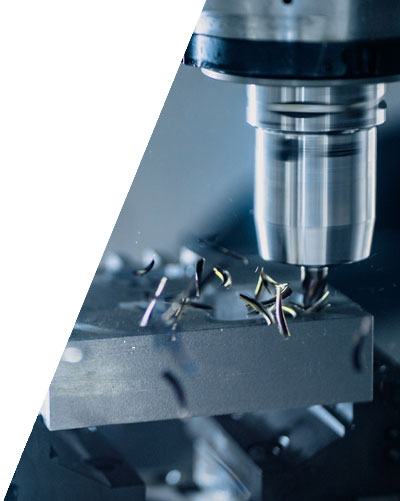
What is the job of a CNC machine operator/programmer?
We asked Gabriel about the job of CNC operator/programmer, a native of Spain who swapped his country for one in Munich, Germany.
As a CNC lathe programmer operator in Germany, my job primarily involves using computer numerical control (CNC) machines to manufacture precision parts for various industries. This is a highly technical and skilled role that requires a great deal of precision, attention to detail, and knowledge of machining processes.
One of the key aspects of my job is programming the CNC machines. This involves inputting precise measurements and instructions into the machine's computer system, which then controls the movement of the cutting tools. To do this, I use specialized software to design the part and generate the necessary toolpaths.
Once the program is created, I then set up the machine by selecting the appropriate cutting tools, adjusting their positions and speeds, and installing the necessary fixtures to hold the part in place. This requires a great deal of knowledge about the specific machine and the materials being used, as well as a keen eye for detail to ensure that everything is properly aligned.
Once the machine is set up, I begin the manufacturing process. This involves closely monitoring the machine's performance and making adjustments as needed to ensure that the part is being cut to the exact specifications. Throughout the process, I am constantly checking the quality of the part using specialized measuring tools and making any necessary adjustments to the program or machine settings.
One of the challenges of this job is that it requires a great deal of focus and concentration. A single mistake in the programming or setup process can result in a faulty part, which can be costly and time-consuming to correct. As such, I need to be able to stay focused and alert for long periods of time, and be able to think creatively and quickly to troubleshoot any issues that arise.
Overall, being a CNC lathe programmer operator in Germany is a challenging and rewarding job that requires a great deal of skill and precision. It is a vital role in the manufacturing industry, and one that requires a combination of technical expertise, attention to detail, and creative problem-solving skills.
How did you become a CNC operator?
As a CNC operator, I know firsthand how rewarding a career in this field can be. CNC operators are responsible for creating precision parts for a variety of industries, and the demand for skilled operators continues to grow. If you're interested in pursuing a career as a CNC operator, here's how you can get started:
✔ Complete a 160-hour CNC operator course.
 This is a great way to gain the foundational knowledge and skills necessary to work with CNC machines. During the course, you'll learn about the various components of CNC machines and their operation, as well as how to read technical drawings and use measuring tools to ensure accurate part production.
This is a great way to gain the foundational knowledge and skills necessary to work with CNC machines. During the course, you'll learn about the various components of CNC machines and their operation, as well as how to read technical drawings and use measuring tools to ensure accurate part production.
✔ Gain practical experience.
In addition to coursework, it's important to gain hands-on experience with CNC machines. I took practical classes at a machining plant to apply my knowledge in a real-world setting and learn from experienced professionals in the industry.
✔ Get certified.
Certification is a great way to demonstrate your proficiency in operating CNC machines. I became certified by both Siemens and TÜV SÜD, two of the leading certification bodies in the industry. These certifications show that you have the necessary skills and knowledge to operate CNC machines safely and efficiently.
✔ Master technical skills.
As a CNC operator, it's important to master technical skills such as reading technical drawings and using measuring tools to ensure precise part production. You also need to know how to select tools and the working parameters of CNC machines.
✔ Stay up to date.
Technology is always evolving, and it's important to stay up to date with the latest developments in the field. Attend workshops, seminars, and other training opportunities to continue learning and refining your skills.
In conclusion, becoming a CNC operator requires a combination of education, practical experience, and certification. By completing a 160-hour CNC operator course, gaining practical experience, getting certified, mastering technical skills, and staying up to date with the latest developments in the field, you can build a successful career as a CNC operator. How I tie my career as a CNC operator, although it was not always so, I was a humanist by education and at the age of 30 I changed to CNC operator, I came here from Spain, Germany is now my second home.


 © 2024
© 2024